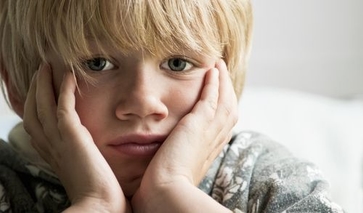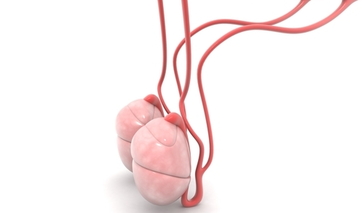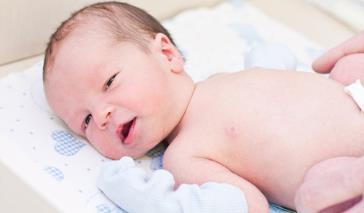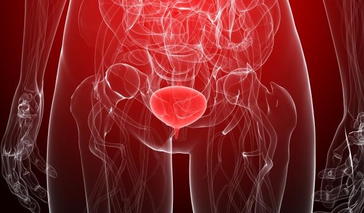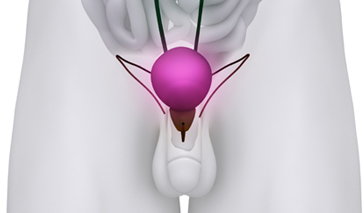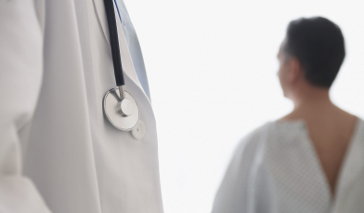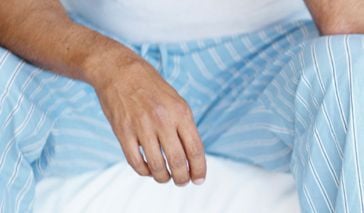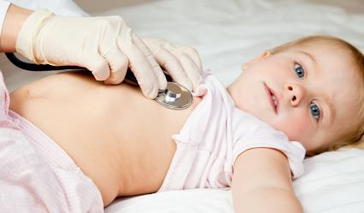Non-neurogenic voiding dysfunction occurs when an individual??in this case a child??experiences symptoms of urinary incontinence due to a disruption in the signals the bladder sends to the brain, or as a result of behavioral and developmental issues. Continue Reading
Non-neurogenic voiding dysfunction occurs when an individual??in this case a child??experiences symptoms of urinary incontinence due to a disruption in the signals the bladder sends to the brain, or as a result of behavioral and developmental issues. Continue Reading
Undescended testes, in which one or both testicles fail to descend to their normal position, occurs in 3 percent of all infant boys and is the most common male birth defect. Read more about the condition, its causes, and its symptoms. Continue Reading
Undescended testes, in which one or both testicles fail to descend to their normal position, occurs in 3 percent of all infant boys and is the most common male birth defect. Read more about the condition, its causes, and its symptoms. Continue Reading
Intersex conditions, also known as disorders of sex development (DSD), occur when infants are born with a mix of male and female genitalia. The defect lies within the chromosomes, gonads, or anatomical sex, and the degree to which the external and internal reproductive organs are affected varies. Continue Reading
Intersex conditions, also known as disorders of sex development (DSD), occur when infants are born with a mix of male and female genitalia. The defect lies within the chromosomes, gonads, or anatomical sex, and the degree to which the external and internal reproductive organ Continue Reading
Interstitial cystitis (IC) is a chronic inflammation of the bladder wall, occasionally accompanied by small spots of bleeding or areas of broken skin. Continue Reading
Interstitial cystitis (IC) is a chronic inflammation of the bladder wall, occasionally accompanied by small spots of bleeding or areas of broken skin. Continue Reading
Posterior urethral valve (PUV) refers to a defect of the urethra, which is the tube that transports urine from the bladder to the genitals so that urine can pass outside of the body. The condition occurs when the urethral valves have a constricted, slit-like opening that partially obstructs urine fl ... Continue Reading
Posterior urethral valve (PUV) refers to a defect of the urethra, which is the tube that transports urine from the bladder to the genitals so that urine can pass outside of the body. The condition occurs when the urethral valves have a constricted, slit-like opening that par ... Continue Reading
Peyronie's disease is a connective tissue disorder that causes flat scar tissue (a plaque) to form within the penis. The condition can be painful and, depending on the location of the scar tissue, often causes the penis to bend either up or down during erections. Continue Reading
Peyronie's disease is a connective tissue disorder that causes flat scar tissue (a plaque) to form within the penis. The condition can be painful and, depending on the location of the scar tissue, often causes the penis to bend either up or down during erections. Continue Reading
When the muscles and ligaments of a pelvic organ (pelvic floor) weaken, they can cause everything from pain to incontinence. Pelvic organ prolapse is treatable and, depending on severity, can range from lifestyle changes and simple exercises to surgery. Continue Reading
When the muscles and ligaments of a pelvic organ (pelvic floor) weaken, they can cause everything from pain to incontinence. Pelvic organ prolapse is treatable and, depending on severity, can range from lifestyle changes and simple exercises to surgery. Continue Reading
Orchitis is the inflammation of one or both testicles as a result of infection, either viral or bacterial. It can be accompanied by a number of symptoms, including those that are flu-like in nature (fatigue, nausea, and fever), as well as serious complications, such as infertility. Continue Reading
Orchitis is the inflammation of one or both testicles as a result of infection, either viral or bacterial. It can be accompanied by a number of symptoms, including those that are flu-like in nature (fatigue, nausea, and fever), as well as serious complications, such as infer Continue Reading
Nighttime bed-wetting in children older than six can be caused by a number of factors, including diabetes, an immature nervous system, and urinary tract irregularities. Tracking down the cause can help inform treatment. Continue Reading
Nighttime bed-wetting in children older than six can be caused by a number of factors, including diabetes, an immature nervous system, and urinary tract irregularities. Tracking down the cause can help inform treatment. Continue Reading
Neuroblastoma is a type of pediatric cancer that occurs when neuroblasts fail to mature into functioning nerve cells, and instead become cancer cells. Continue Reading
Neuroblastoma is a type of pediatric cancer that occurs when neuroblasts fail to mature into functioning nerve cells, and instead become cancer cells. Continue Reading

